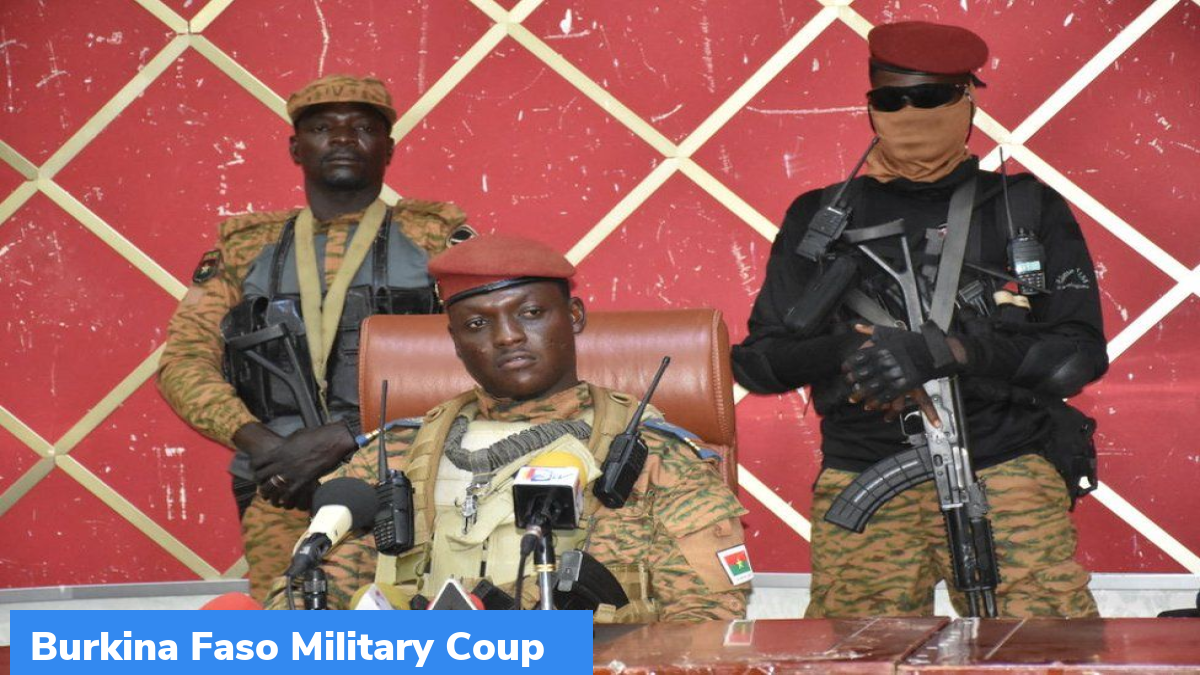Burkina Faso Military Coup
The recent coup d’état resulted in the overthrowing of the Interim President Paul-Henri Sandaogo Damiba and army Captain Ibrahim Traore taking over the government.
Key facts
- On September 30, 2022, the second coup took place in Burkina Faso this year, resulting dissolution of the traditional government and suspension of the constitution.
- The interim President Damiba was overthrown because of his alleged involvement in the African country’s Islamic insurgency.
- Earlier this year, on January 24, Burkina Faso’s Army led by Damiba disposed President Roch Kabore, who held the office for more than 6 years. The coup came in response to several days of unrest in the country’s capital Ouagadougou.
- The civilian government was ousted for its inability to address deteriorating security situation and the inability to unite the country.
- Since 2015, Burkina Faso has been witnessing escalating violence mainly because of rebel fighters having close ties with extremist Islamic groups – al-Qaeda and the ISIL.
- The country has since become an epicentre for conflict in the Sahel, resulting in deaths of thousands of people and displacing 2 million others.
- The Damiba-led coup led to the suspension of Burkina Faso from Economic Community of West African States (ECOWAS).
- After Damiba took over the government, there has been a 23 per cent increase in attacks from armed factions.
- The military government was able to control just 60 per cent of the country and the remaining territory was outside its control.
- The Damiba government was facing criticism because of its pro-France stance, amid the rising sentiments against the former colonizer.
- According to the UN, Burkina Faso is among the few West African nations facing “alarming levels” of hunger. It is currently witnessing the worst hunger crisis in 6 years, with over 630,000 individuals at the brink of starvation.
- Now, the military government led by Traore announced that a new interim leader (either civilian or military) will be appointed by the end of this year and it will honour the agreement with ECOWAS and oversee the return of civilian government by 2024.
Month: Current Affairs - October, 2022
Category: International / World Current Affairs


